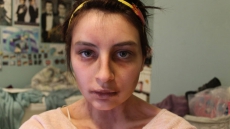Young people cope better with the loss of a loved one because they have balanced stress hormones and a robust immune system that get weakened as we grow older, say scientists.
According to researchers from the University of Birmingham, the balance of our stress hormones, during grief, changes as we age.
It also means that elderly people are more likely to have reduced immune function, thereby suffering from more infections.
"During the difficult times after loss, we can suffer from reduced neutrophil function. Neutrophils are the most abundant type of white blood cells and as such are essential at combating infections and illness, so we become vulnerable when this happens," explained Dr Anna Phillips, a reader in Behavioural Medicine at the University of Birmingham.
The results suggest a relationship between neutrophil function and the balance of our stress hormones.
Two stress hormones in particular appear to display different responses to loss as we age: cortisol and dehydroepiandrosterone sulphate (DHEAS).
In younger participants, the ratio of cortisol and DHEAS was more balanced, whereas the cortisol to DHEAS ratio was significantly higher in the older study group.
Participants were studied while they were coping with the loss of a loved one, either a spouse or a close family member.
"Cortisol is known to suppress elements of the immune system during times of high stress, so having an unbalanced ratio of cortisol and DHEAS is going to affect how able we are to ward off illness and infection when grieving," informed co-author Janet Lord, a professor of immune cell biology.
Hormonal supplements or similar products could be used to help people at an increased risk of stress but this is not the only solution.
"There is, quite simply, no substitute for a strong support network of family and friends to help manage the risks during a period of grieving," researchers concluded.
The paper was published in the journal Immunity and Ageing.






